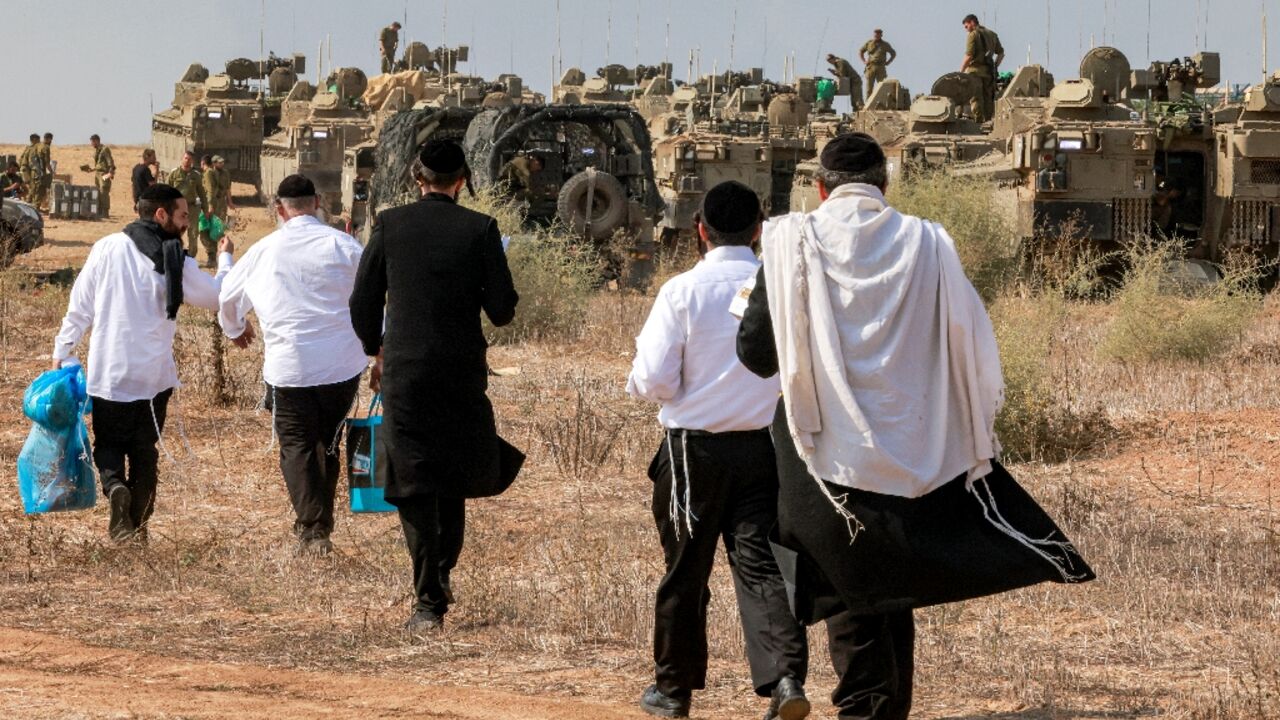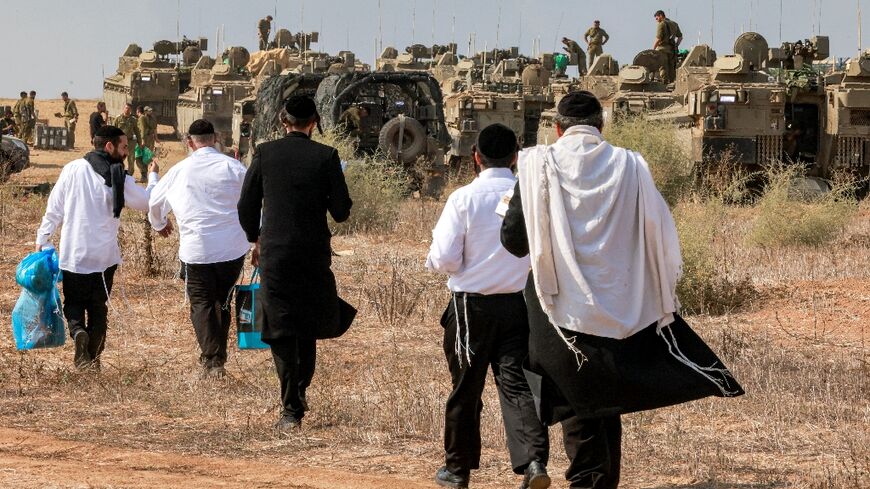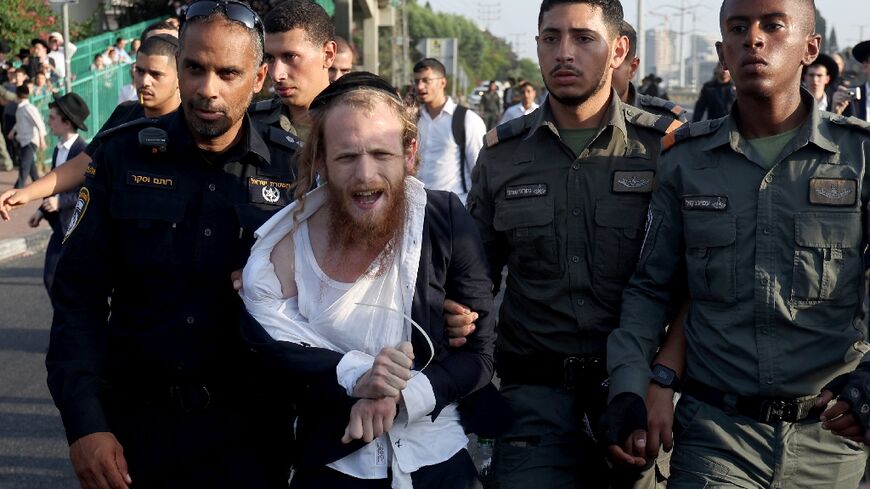Ultra-orthodox Jews wrestle with whether to serve in Gaza war

They were spared from the bloody Hamas attack on October 7 and they are exempt from military service.
Yet some ultra-Orthodox Jews have chosen to renounce that controversial privilege and join the Israeli army.
Dozens gathered outside a recruitment office in Tel Aviv this week, responding to an appeal by the army to all those who might have skills useful in the war against Hamas.
The army said that, in the end, 120 had enrolled and would be assigned to support missions, nursing or driving.
Journalists have not been permitted by Israeli authorities to speak with the new recruits.
The number may be modest, but the symbolism is nevertheless strong.
Under an agreement that dates to the foundation of Israel in 1948, Jewish men who choose to study the Torah full time in a yeshiva are granted an annual deferment from military service until the age of 26, at which point they become exempt.
That allows around 12,000 young men a year, according to a recent army report, to avoid obligatory national service that would otherwise last 32 months as well as the reserve duty for which discharged citizens are liable until the age of 40.
Religious women are automatically exempted from the 24-month conscription imposed on secular Israeli women.
There were few, if any, members of the Haredi community -- the Hebrew name for the ultra-Orthodox, meaning "those who tremble" at the word of God -- among the 1,400 killed by Hamas on October 7.
The all-night rave and the secular kibbutzim around Gaza where the Islamist militants killed hundreds of civilians, were not places were ultra-Orthodox Jews were likely to spend time.
Nor, because of their exemptions, were Haredi Jews likely to have been among those soldiers killed fighting to regain control from Hamas.
Instead, the ultra-Orthodox are active in charitable associations and, in particular, Zaka, an NGO that works to identify bodies and ensure proper Jewish burials.
Among those few Haredi Jews who do join the military, many serve in a unit that specialises in body retrievals.
- A newly urgent debate -
With the Israeli army likely to launch a ground invasion of the Gaza Strip, following on from its relentless aerial bombardment that the Hamas-run health ministry says has killed more than 5,000 people, mostly civilians, the decades-old debate around Haredi military exemptions has gained a new urgency.
The spiritual leaders of ultra-Orthodox Judaism, who account for around 12 per cent of the Israeli population, have called for a redoubling of prayers and a strengthening of religious practice.
Before the war started, a bill was due to be debated in the Israeli parliament on continuing the deferments for Haredi Jews.
The two ultra-Orthodox parties that were members of Prime Minister Benjamin Netanyahu's pre-war government -- they provided 18 of 120 MPs -- supported his controversial judicial reforms in exchange for support on the law.
There have been calls, albeit rare ones, from within the ultra-Orthodox community to join the army and participate in the war effort in uniform.
Raphael Kreuzer, a rabbi from a modernising stream of Haredi Judaism, caused waves by calling for yeshiva students to enrol in the military.
"It is about our people, it is about us and we must act," he said, adding that students should demand that their rabbis "be part of the defence of their land".
"To say that tomorrow, all the yeshiva students will join the army, no, I don't think that's possible, but this is a real war... It is a religious duty to serve and protect your country," Yosef Taieb, an MP for the Sephardic ultra-Orthodox Shas party, told AFP.
"Everyone in their own way must help the army and the country to win this war," Taieb, a former combat soldier, added.
Such views, though, are far from universal in the Haredi community.
Images have spread widely on social media of a senior officer who had visited a yeshiva to urge students to put aside their books and enlist only to have rabbis and pupils try to silence him.
"I will continue to do so until 10,000 yeshiva students enlist," the officer, Erez Eshel, wrote in the right-wing newspaper Makor Rishon.
The army offers multiple options to religious Jews, allowing them to do military service without abandoning their way of life.
Nevertheless, only a few hundred are willing to take the risk of being ostracised by their communities.
And the vast majority of Haredi leaders remain hostile to any attempts to enrol their youngsters.
One rabbi even criticised the secular victims of Hamas the army is seeking to avenge.
Yaakov-Tzvi Boshkovski called the desert rave on the Jewish sabbath, at which Hamas killed 260 people, "a provocation in the face of the divine".





